Has your engine started shaking and vibrating unexpectedly? This unsettling experience is often a sign of a misfiring cylinder. When a cylinder misfires, the engine’s smooth operation is disrupted, leading to noticeable vibrations and decreased performance. One specific issue that can cause this is the P0307 check engine light code, which indicates a misfire detected in cylinder 7.
Understanding what this code means and how to address it can save you from further engine issues and costly repairs. The P0307 code is a Diagnostic Trouble Code (DTC) that indicates a misfire in your engine’s seventh cylinder. If not addressed promptly, cylinder misfires can lead to various performance issues, reduced fuel efficiency, and potential engine damage.
In this guide, we’ll explore the common symptoms, causes, and repair solutions for the P0307 code to help you keep your engine running smoothly and efficiently. Understanding these aspects will empower you to take timely action and avoid more significant issues down the road.
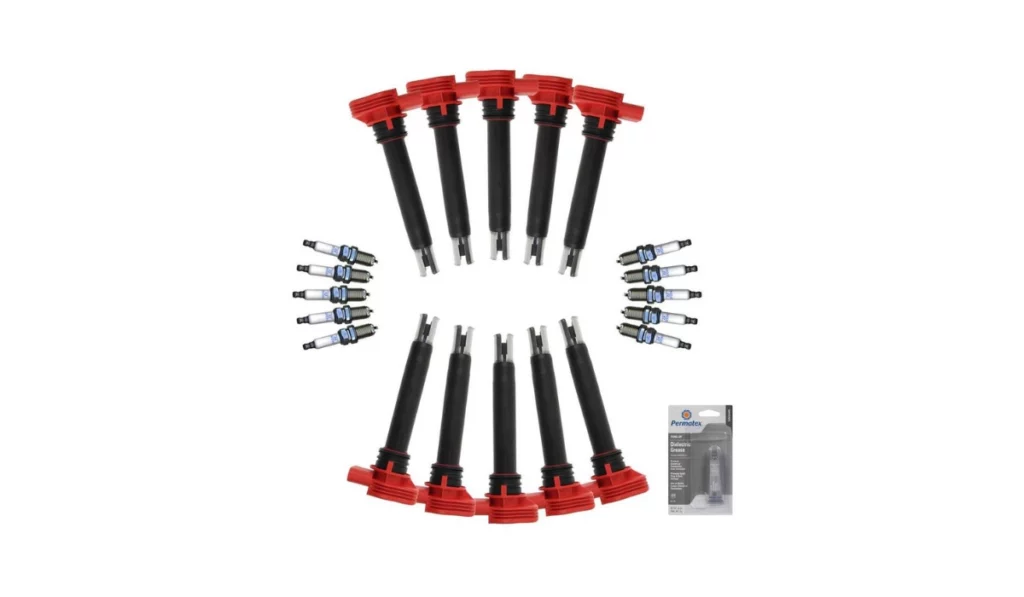
Common Symptoms of the P0307 Code
Recognizing the symptoms of a P0307 code can help you diagnose and fix the issue before it leads to more severe problems. This section will cover the common signs indicating a misfire in cylinder 7.
Check Engine Light
The most obvious symptom of the P0307 code is the illumination of the check engine light. When the ECU detects a misfire in cylinder 7, it triggers the check engine light to alert you to the issue. This warning light is often the first indication that something is wrong under the hood.
Engine Vibration on Idle
One of the telltale signs of a cylinder misfire is noticeable engine vibration when the vehicle is idling. This shaking occurs because the engine power is not balanced, as when a cylinder misfires, it produces a bit less power than other cylinders. If your car shakes excessively at a stoplight or while parked, it could indicate a misfire in cylinder 7.
Engine Performance Issues
Misfires can lead to various engine performance issues, including rough idling, hesitation during acceleration, and reduced power. You might notice that your vehicle doesn’t respond as smoothly when you press the accelerator or shakes when idling. These performance issues are direct consequences of incomplete combustion in cylinder 7.
Poor Fuel Economy
A misfiring cylinder can decrease fuel efficiency. When a cylinder misfires, the engine has to work harder to compensate for the loss of power, which can result in higher fuel consumption. If any cylinders are misfiring, you may have to refuel more often than usual.
Unusual Noises
Knocking or sputtering noises from the engine are common symptoms of a misfire. These noises occur because the combustion process is not happening correctly in cylinder 7, leading to irregular engine operation. You might hear these noises more prominently when accelerating or under load.

Can you drive with a cylinder 7 misfire?
No, it is not advisable to drive with a cylinder 7 misfire. Driving with a misfire can lead to further engine damage, decreased performance, and increased emissions. One significant risk is damage to the catalytic converter.
Unburnt fuel from a misfiring cylinder can enter the exhaust system and reach the catalytic converter. There, it ignites and burns, generating excessive heat beyond what the catalytic converter is designed to handle.
This can cause the catalytic converter to overheat and become damaged, leading to costly repairs. If you suspect a misfire, it’s best to have your vehicle inspected and repaired as soon as possible to ensure your safety and the reliability of your vehicle.
Affordable Genuine European Car Parts
Shop at eEuroparts.com for a wide selection of genuine European Auto parts and OEM parts at unbeatable prices. Our mission is to help every European car owner get high-quality auto parts without breaking the bank. Our curated range meets all OEM standards and is tailored to your European car needs. From crucial emissions system parts to routine maintenance items, we ensure your vehicle runs efficiently.
Opt for eEuroparts.com and enjoy significant savings without compromising quality, perfect for European car DIY enthusiasts who value affordability and quality. Our vast inventory, user-friendly site, and top-notch customer service guarantee you find exactly what you need. For maintenance or upgrades, rely on eEuroparts.com.
What causes a cylinder to misfire?
There is a multitude of possible causes why your engine is misfiring. An engine needs three elements to work — fuel, air, and spark. If any of these elements are not balanced, it can cause a misfire on any cylinders. Additionally, engine mechanical failures may also cause the engine to misfire. Let’s talk about the most common causes of the P0307 code, shall we?
Faulty Spark Plug or Ignition Coil
A worn-out spark plug or a failing ignition coil can cause a misfire in cylinder 7. Spark plugs provide the spark needed to ignite the air-fuel mixture in the cylinder. If the spark plug is damaged, fouled, or worn, it may not produce a strong enough spark, leading to incomplete combustion. Similarly, the ignition coil, which generates the high voltage needed for the spark plug, can fail and result in a weak or intermittent spark.
Fuel Injector Problems
Issues with the fuel injector can lead to improper fuel delivery to cylinder 7. Fuel injectors spray fuel into the cylinder at the correct pressure and timing. If the injector is clogged, leaking, or malfunctioning, it can disrupt the fuel-air mixture, causing the cylinder to misfire. Regular maintenance and cleaning of your fuel injectors can help prevent injector problems.
Wiring Problems
Damaged or corroded wiring can disrupt the ignition or fuel injection system, causing a misfire. The engine’s electrical system relies on a network of wires and connectors to deliver signals and power to various components. Suppose the wiring connected to the spark plug, ignition coil, or fuel injector is damaged, frayed, or corroded. In that case, it can prevent these components from working correctly, leading to a misfire in cylinder 7.
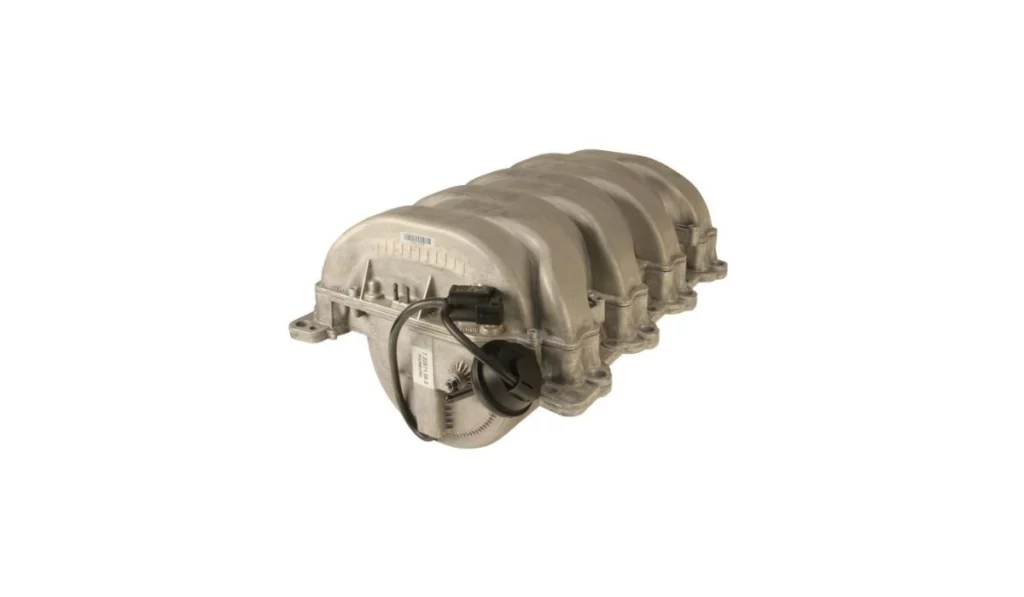
Intake and Exhaust Manifold Leaks
Manifold leaks, whether in the intake or exhaust manifold, can cause a cylinder to misfire, depending on where the leak is located. The engine relies on a precise balance of air and fuel for efficient combustion, and any disruption in this balance can lead to performance issues.
An intake manifold leak can introduce excess air into the engine, creating a lean air-fuel mixture in cylinder 7, which results in a misfire. Similarly, an exhaust manifold leak can affect the engine’s back pressure and the performance of the exhaust system, leading to a misfire in the affected cylinder.
Compression Issues
Problems with the cylinder’s compression, such as worn piston rings or a damaged head gasket, can lead to a misfire. Compression is essential for the combustion process, as it ensures the air-fuel mixture is adequately compressed before ignition. If there is a loss of compression due to mechanical issues like a blown head gasket, damaged piston rings, or a cracked cylinder head, the cylinder will not function properly, leading to a misfire.
Diagnosing the P0307 Code
Diagnosing the P0307 code accurately is essential to address the cylinder 7 misfire and prevent further engine damage. This section will guide you through various diagnostic steps to pinpoint the cause of the misfire.
OBD-II Scanner
Using an OBD-II scanner is the first step in diagnosing the P0307 code. Here’s how to use it:
Connect the Scanner — Plug the OBD-II scanner into the vehicle’s diagnostic port, usually under the dashboard.

Read the Codes — Turn on the ignition without starting the engine and follow the scanner’s instructions to retrieve the diagnostic trouble codes. Confirm the presence of the P0307 code and check for any related codes, such as P0300 (Random/Multiple Cylinder Misfire Detected), P0301 (Cylinder 1 Misfire Detected), P0303 (Cylinder 3 Misfire Detected), P0305 (Cylinder 5 Misfire Detected), P0306 Cylinder 6 Misfire Detected. Doing so can help you understand what could have gone wrong.
Clear the Codes — After recording the codes, clear them from the ECU to see if they return. This can help determine if the misfire is a persistent issue.
Visual Inspection
A visual inspection can help identify obvious issues with the spark plugs, ignition coils, fuel injectors, and wiring. Follow these steps:
Inspect Spark Plugs — Remove the spark plug from cylinder 7 and check for signs of wear, fouling, or damage. Replace if necessary.
Check Ignition Coils — Inspect the ignition coil for cracks, corrosion, or other damage.
Examine Fuel Injector — Examine the external condition of the fuel injector. Look for signs of fuel leak and blow-by marks that could indicate a failure of its seals.
Analyze the Wirings — Look for frayed, damaged, or corroded wires connected to the spark plug, ignition coil, and fuel injector. Repair or replace any damaged wiring.
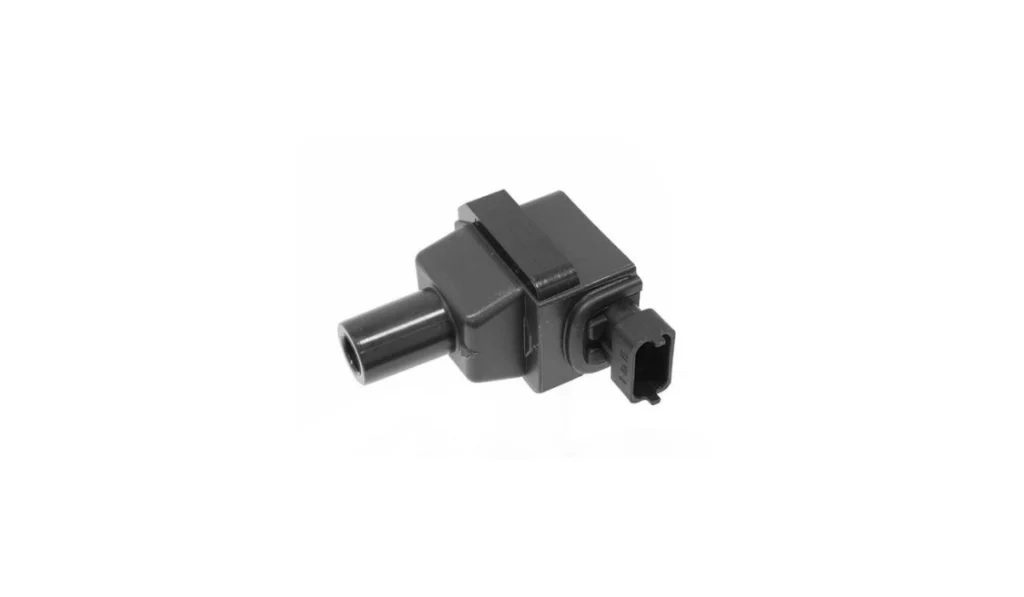
Swapping Components
Swapping components between cylinder 7 and a known good cylinder can help identify the faulty part. Here’s how to do it:
Swap the Ignition Coil and Spark Plug — Start by swapping the ignition coil and spark plug from cylinder 7 with those from another cylinder. Clear the code and run the engine to see if the misfire moves to the other cylinder. If the misfire moves, the swapped component is likely faulty.
Swap the Fuel Injector — If the misfire stays in cylinder 7 after swapping the ignition coil and spark plug, swap the fuel injector from cylinder 7 with one from another cylinder. Clear the code and test the engine again. If the misfire moves, the injector is likely the issue.
Check for Persistent Misfire — If the misfire remains in cylinder 7 after swapping these components, the problem may be related to compression issues or manifold leaks.
Compression Test
Performing a compression test can help identify mechanical issues in cylinder 7:
Prepare the Engine — Remove the spark plug from all cylinders and remove the fuse for the fuel system to prevent fuel from entering the cylinders
Insert Compression Gauge — Screw the compression gauge into the spark plug holes.
Crank the Engine — Turn the engine over a few times and record the compression reading on all cylinders, focusing on the value generated by cylinder 7. Compare the readings to other cylinders and the manufacturer’s specifications. Low compression may indicate worn piston rings, a damaged head gasket, or a valve issue.
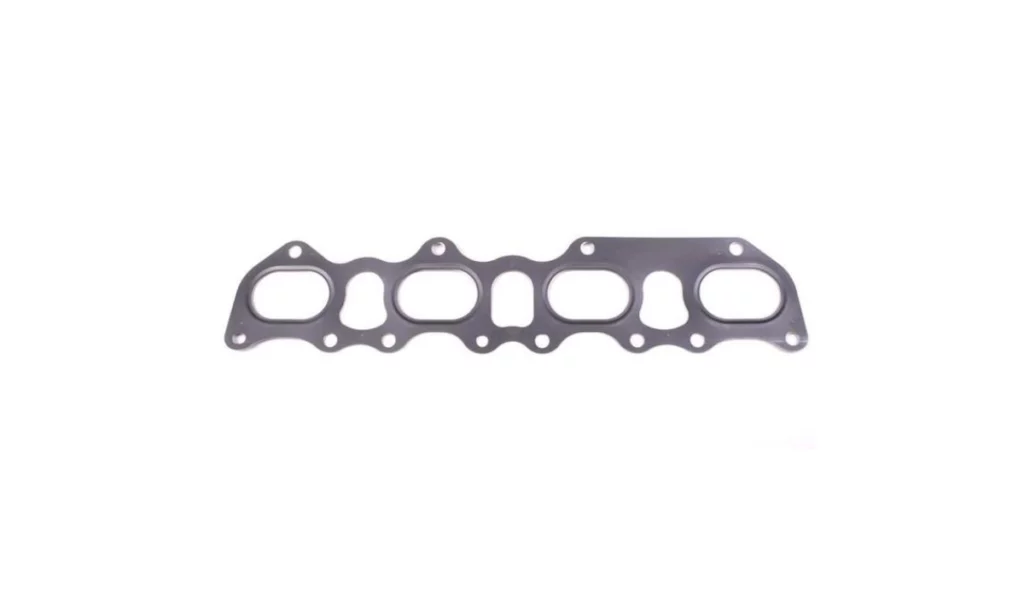
Intake and Exhaust Manifold Check
A leak in the intake or exhaust manifold can cause a misfire on cylinder 7, depending on where the leak is. Here’s how to check for leaks:
Use a Smoke Machine — Connect a smoke machine to the intake manifold and introduce smoke into the system.
Check for Leaks — Observe where the smoke escapes. Leaks in the intake manifold can cause a lean air-fuel mixture, while exhaust leaks can affect back pressure and sensor readings.
Repair Leaks — Seal any detected leaks in the manifolds to ensure proper engine operation.
Following these diagnostic steps, you can accurately identify the cause of the P0307 code and take the necessary actions to repair the issue, ensuring your vehicle runs smoothly and efficiently. Regular maintenance and prompt repairs can prevent misfires and maintain engine performance.
Repair Solutions for the P0307 Code
Effectively repairing the P0307 code involves addressing the root causes of the cylinder 7 misfire. This section provides detailed repair solutions, including replacing spark plugs and ignition coils, repairing or replacing fuel injectors, fixing manifold leaks, addressing compression issues, and repairing wiring problems.
Tools Required
Before starting the repair, ensure you have the necessary tools to perform the job correctly. Here’s a list of tools and equipment you’ll need:
- Gloves
- Safety goggles
- Respirator mask
- Ratchet and socket set
- Spanner set
- Screwdriver set
- Pliers set
- Spark plug socket
- Torque wrench
- Fuel injector puller set
- Multimeter
- Fuel pressure gauge
- Compression tester
- Smoke machine
- Fuel injector ultrasonic cleaner
- Electrical tape or heat shrink tube
- Dielectric grease
Safety Steps
When working on your vehicle, it’s crucial to follow safety procedures to prevent accidents and ensure the job is done correctly. Always use the right tools for each task and wear appropriate safety equipment, such as gloves and safety goggles.
Be aware of the dangers of working with hot components; let the engine cool down before starting any repairs. Exercise caution when working on the fuel system to prevent leaks and potential fires. Keeping a fire extinguisher nearby is always a good idea.
These safety steps can help protect you from injuries and ensure a successful repair.
Replacing Spark Plugs and Ignition Coils
Here’s a step-by-step guide on how to replace faulty spark plugs and ignition coils:
Remove the Ignition Coil — Locate the ignition coil for cylinder 7, disconnect the electrical connector, and remove the mounting bolts. Pull the coil straight out.
Remove the Spark Plug — Use a spark plug socket and extension to remove the old spark plug from the cylinder.
Install the New Spark Plug — Carefully thread the new spark plug into the cylinder by hand, then tighten it with a torque wrench to the manufacturer’s specifications.
Install the New Ignition Coil — Place the new ignition coil onto the spark plug, reconnect the electrical connector, and secure it with the mounting bolts.
Mechanic’s Tip — If you are replacing a spark plug or ignition coil, it is recommended that you replace the whole set. This is because these parts wear out at the same rate, and replacing just one will cause the same issue with the other cylinder later.
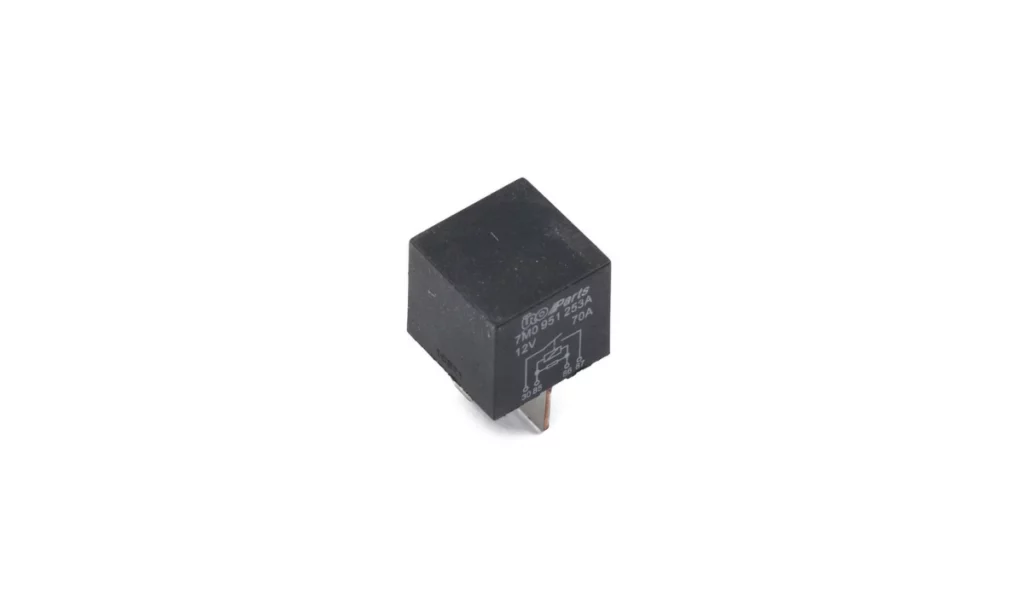
Repairing or Replacing Fuel Injectors
Addressing fuel injector problems, including cleaning or replacing the injector:
Relieve Fuel System Pressure — Remove the fuel pump fuse or relay, start the engine, and let it run until it stalls to relieve pressure.
Disconnect the Battery — To prevent electrical shocks, disconnect the negative battery terminal.
Remove the Fuel Rail — Disconnect the fuel lines and electrical connectors from the fuel rail, then remove the mounting bolts and lift the rail off the injectors.
Remove the Injector — Use the injector puller carefully to remove the faulty injector from the fuel rail.
Clean the Injector — If cleaning, use a fuel injector ultrasonic cleaner to remove deposits and ensure proper spray pattern.
Install the New or Cleaned Injector — Insert the new or cleaned injector into the fuel rail with new seals and gaskets, ensuring it’s seated properly.
Reassemble and Test — Reattach the fuel rail, reconnect the fuel lines and electrical connectors, reconnect the battery, and start the engine to check for proper operation.
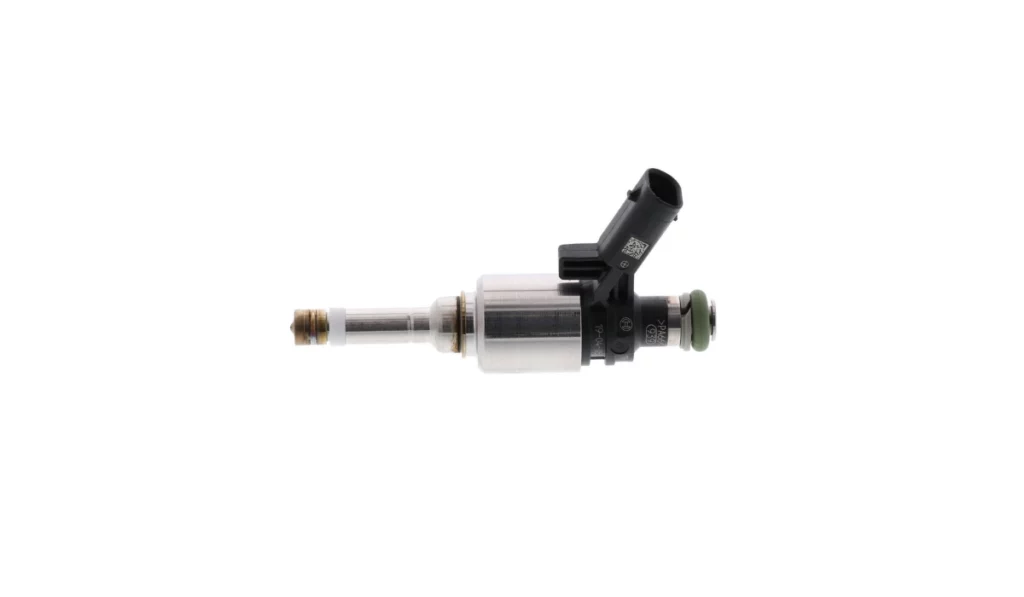
Repairing Wiring Issues
Tips on inspecting and repairing damaged wiring:
Inspect Wiring — Check all wiring connected to the spark plug, ignition coil, and fuel injector for signs of damage or corrosion.
Repair Damaged Wires — Use electrical tape or heat shrink tubing to insulate minor damage. For severe damage, replace the wiring entirely.
Check Connectors — Ensure all electrical connectors are clean and securely attached. Use dielectric grease to prevent corrosion.
Test Connections — Use a multimeter to check for continuity and proper voltage at all connections.
Fixing Manifold Leaks
Manifold leaks, whether in the intake or exhaust manifold, can also cause cylinder misfires. Here’s how to identify and repair these leaks efficiently:
Remove the Manifold — Unbolt and carefully remove the manifold. Use penetrating lubricant on bolts if needed.
Inspect for Cracks — Check the manifold for cracks and replace them if necessary. Welding small cracks can be a temporary fix, but replacement is often better.
Replace Gaskets — Install new gaskets and ensure they are seated properly. Clean mating surfaces thoroughly.
Reinstall and Test — Reattach the manifold and torque bolts to specifications and test for leaks using the smoke machine.
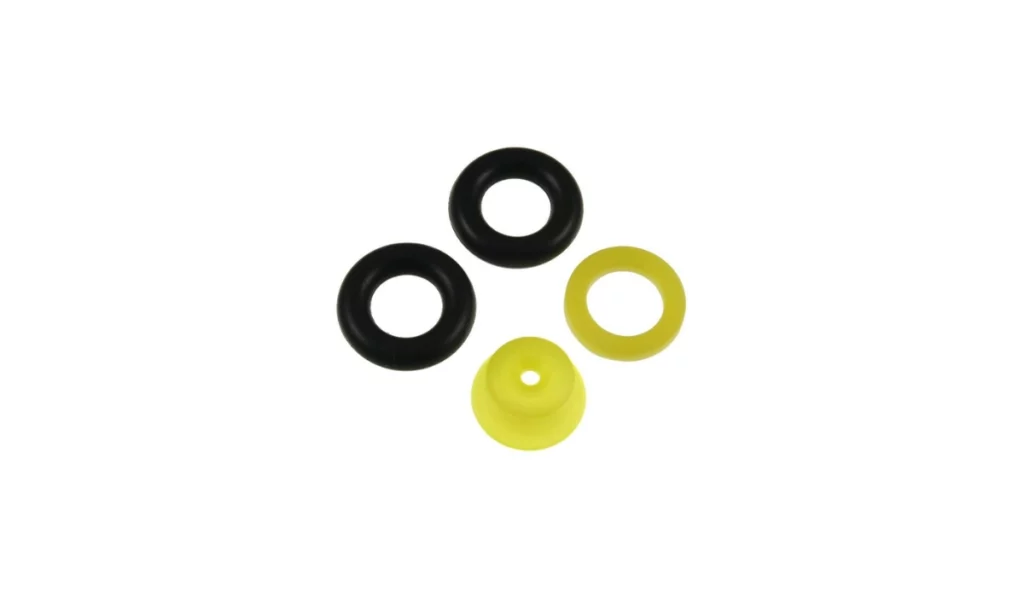
Addressing Compression Issues
Most repairs that fix compression issues require a full engine teardown and demand above-average mechanical know-how. Common compression-related repairs include replacing worn piston rings, damaged valves, or a blown head gasket.
These tasks involve removing the cylinder head and inspecting for damage, which can be intricate and time-consuming. Reassembly must be precise, ensuring all components are torqued to specifications. Because of the complexity, DIY repairs come with significant risks.
If you choose to proceed, ensure you have your vehicle’s repair manual at hand for reference and follow all instructions carefully. It’s crucial to understand that undertaking such repairs without proper knowledge can lead to further engine damage.
How much does it cost to fix a P0307 code?
The cost to fix a P0307 code varies depending on the underlying cause. Replacing spark plugs and ignition coils typically costs between $100 and $300, while fuel injector repairs can range from $200 to $400. For manifold leaks, the cost of parts and labor usually ranges between $500 and $2000.
Addressing compression issues, such as replacing piston rings or head gaskets, can be more costly, often exceeding $1,000. Repairing wiring issues might cost between $50 and $200, depending on the extent of the damage. It’s advisable to get a detailed estimate from a trusted mechanic to understand the specific costs for your vehicle.
Top-Quality Parts For a Top-Quality Ride!
When maintaining your vehicle and addressing issues like the P0307 code, using high-quality parts is crucial. At eEuroparts.com, we offer a wide selection of premium OEM and aftermarket parts to ensure your repairs are done right the first time.
Whether you need new spark plugs, ignition coils, fuel injectors, or other components, we have you covered. Our user-friendly website makes it easy to find exactly what you need, and our competitive prices ensure you get the best value. Plus, with fast shipping and excellent customer service, you can trust that your parts will arrive quickly and accurately.
Don’t settle for less when it comes to your vehicle’s performance and reliability. Visit eEuroparts.com today and explore our extensive inventory to keep your car running smoothly and efficiently. Shop now and experience the difference that high-quality parts and outstanding service can make!
















